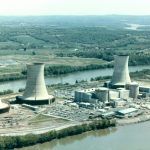Obama’s India visit: The nuclear outcome
By J. Sri Raman | December 8, 2010
When President Barack Obama visited India in November, there was no shortage of media attention. What did receive less than due notice during the visit, however, was a US-India nuclear initiative that promoted nuclear diplomacy between the two countries. The question now is whether this is a relationship to foster nuclear disarmament — or whether this is simply the beginning of India’s membership into the nuclear club.
In a joint statement issued on November 8, Obama and India’s Prime Minister Manmohan Singh “affirmed the need for a meaningful dialogue among all states possessing nuclear weapons to build trust and confidence and for reducing the salience of nuclear weapons in international affairs and security doctrines.” They supported “strengthening the six-decade old international norm of non-use of nuclear weapons”, and demanded that a discussion about this very norm take place between the world’s five nuclear states — US, UK, France, Russia, and China — and three nations that have developed nuclear weapons outside the global nonproliferation regime — India, Pakistan, and Israel (Tel Aviv does not admit this explicitly).
Perhaps unsurprisingly, there was something of an implicit quid pro quo on both Iran and Pakistan. In terms of Iran, the statement addressed the two nations’ future cooperation to keep terrorists from “acquiring nuclear weapons or material without reducing the rights of nations that play by the rules to harness the power of nuclear energy to advance their energy security.”
The two leaders also pledged to safeguard and secure vulnerable nuclear materials over the next four years, as was outlined in April 2010 at the Nuclear Security Summit in Washington, DC. “Both sides expressed deep concern regarding illicit nuclear trafficking and smuggling and resolved to strengthen international cooperative efforts to address these threats through the IAEA, Interpol and in the context of the Nuclear Security Summit Communiqué and Action Plan.” In India, at least, the passage was widely understood as alluding to Pakistan.
The initiative is of added interest against the backdrop of the well-known US-India nuclear cooperation deal: Just days before Obama arrived, India signed the international Convention on Supplementary Compensation for Nuclear Damage (CSC), meeting the last of the country’s commitments for the nuclear deal with the US. The CSC provides an international fund to compensate victims in the case of a nuclear accident; it also protects nuclear operators by limiting their financial liability. This was good news to US suppliers, as many were left quite frustrated earlier this year after India signed the Liability for Nuclear Damages Act, which puts the financial responsibility on nuclear suppliers in the case of a nuclear accident. US and other nuclear suppliers argued that suppliers should be liable only in proven cases of “gross” and “willful” negligence. But will it be possible for New Delhi to abide by both the convention and the act?
India’s nuclear establishment answers in the affirmative. It draws a distinction between legal “liability” and compensation (“supplementary” to the liability). It has been argued that neither India’s fund-related commitment under the CSC nor its national law stops it from entering into special and specific bilateral nuclear agreements with other countries and suppliers.
Such bilateral arrangements were envisaged in the joint statement, and helped allay US apprehensions on this count: “The two leaders welcomed the completion of steps by the two governments for implementation of the India-U.S. civil nuclear agreement. They reiterated their commitment to build strong India-U.S. civil nuclear energy cooperation through the participation of the U.S. nuclear energy firms in India on the basis of mutually acceptable technical and commercial terms and conditions that enable a viable tariff regime for electricity generated. … They further noted that India intends to ratify the Convention on Supplementary Compensation within the coming year and is committed to ensuring a level playing field for U.S. companies seeking to enter the Indian nuclear energy sector, consistent with India’s national and international legal obligations.”
As for this new initiative, there are two interpretations. One, of course, is that India and the US will work together toward nuclear disarmament — this is the rather positive and encouraging interpretation.
The other interpretation, albeit more pessimistic, is that President Obama is simply continuing the history of legitimizing India’s nuclear weapons and nuclear weapons program. India has not forgotten Obama’s past: As a senator, he had opposed the 2005 US-India deal during the Bush administration. His change of course has some interpreting this meeting as India’s backdoor entry into the exclusive “nuclear club.” Such admission into the club will be viewed as a tacit agreement between the US and India on a policy of accommodation regarding Iran and similar other issues.
It is for the peace movement to ensure that the initiative is implemented in support of its positive interpretation — and does not lead to further negative consequences for the cause of universal nuclear disarmament.
Together, we make the world safer.
The Bulletin elevates expert voices above the noise. But as an independent nonprofit organization, our operations depend on the support of readers like you. Help us continue to deliver quality journalism that holds leaders accountable. Your support of our work at any level is important. In return, we promise our coverage will be understandable, influential, vigilant, solution-oriented, and fair-minded. Together we can make a difference.
Topics: Nuclear Energy, Nuclear Weapons, Opinion















